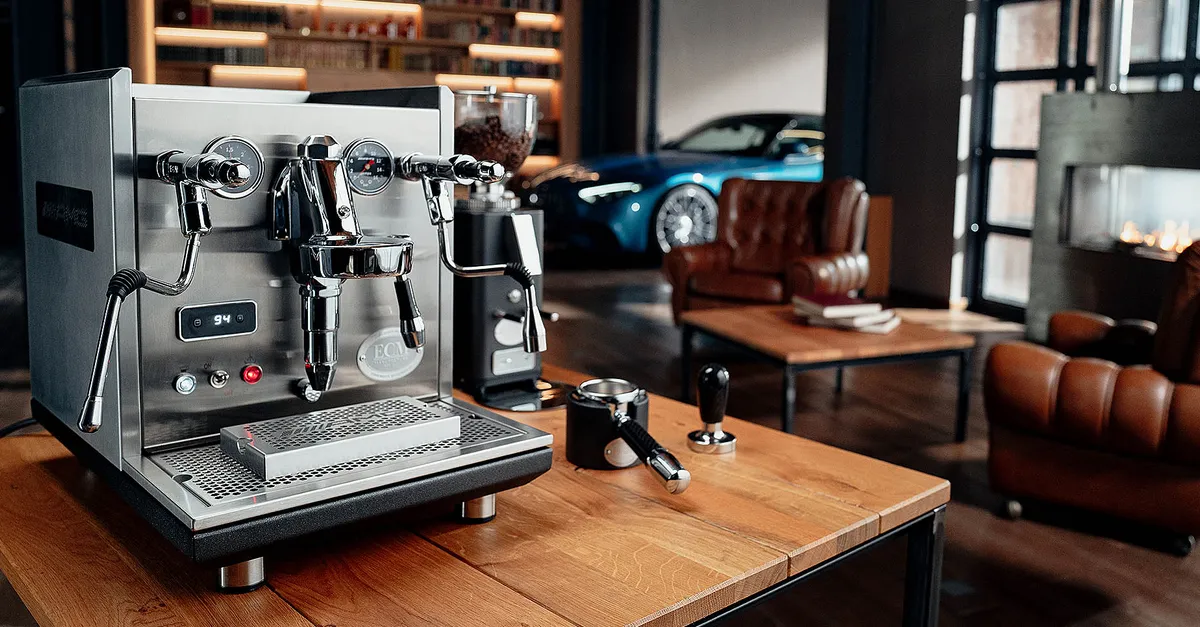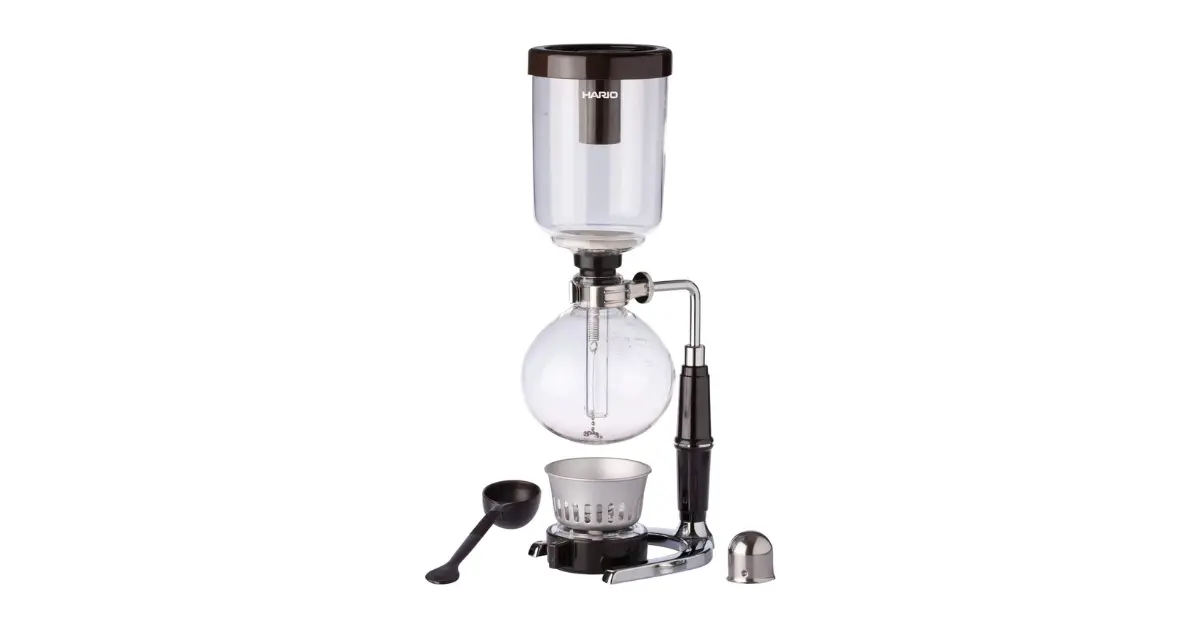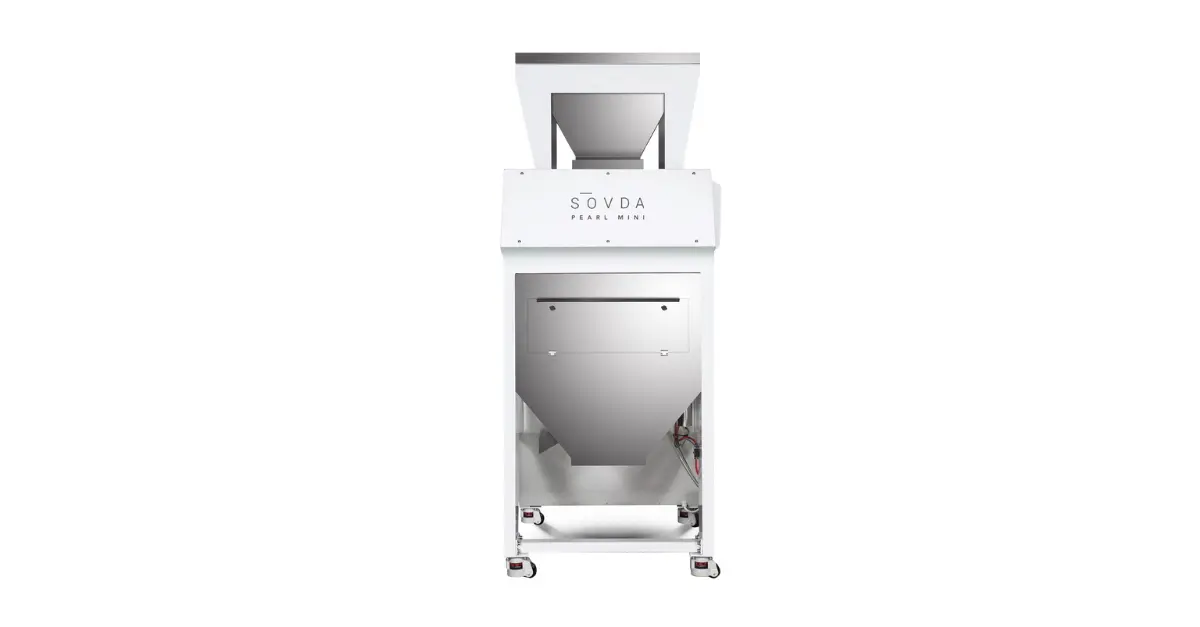For many people in all corners of the globe, coffee is an indispensable part of their day. If you’re one of those people, you’re probably always looking for ways to perfect your brew and enhance the experience of your morning cup of joe. Knowing the coffee filter types is a great place to start.
Coffee Filter Types: All You Need to Know
There are three main materials of coffee filters, paper, cloth, and metal.
Paper and cloth filters are great options for those looking to make their coffee more healthy. On the other hand, metal filters yield coffee with a stronger flavor. In terms of shape, coffee filters can be conical or basket-shaped.
Read on to find out more about the different materials, as well as the pros and cons of using each one to brew your cup of joe. In this guide, we’ll also take you through the different shapes, and sizes of coffee filters and when they’re used.
Coffee Filter Materials
The primary way that’s used to classify the types of coffee filters is the material they’re made of. As mentioned earlier, there are three materials that to make coffee filters:
- Paper
- Cloth
- Metal
Paper Filters
If you’re a casual coffee drinker, the coffee filter type you’re most likely to have encountered is a paper filter. These coffee filters are the most commonly used.
Additionally, they’re the easiest to get your hands on since they’re available at almost any grocery store you’ll go to. You can find these filters either bleached or unbleached.
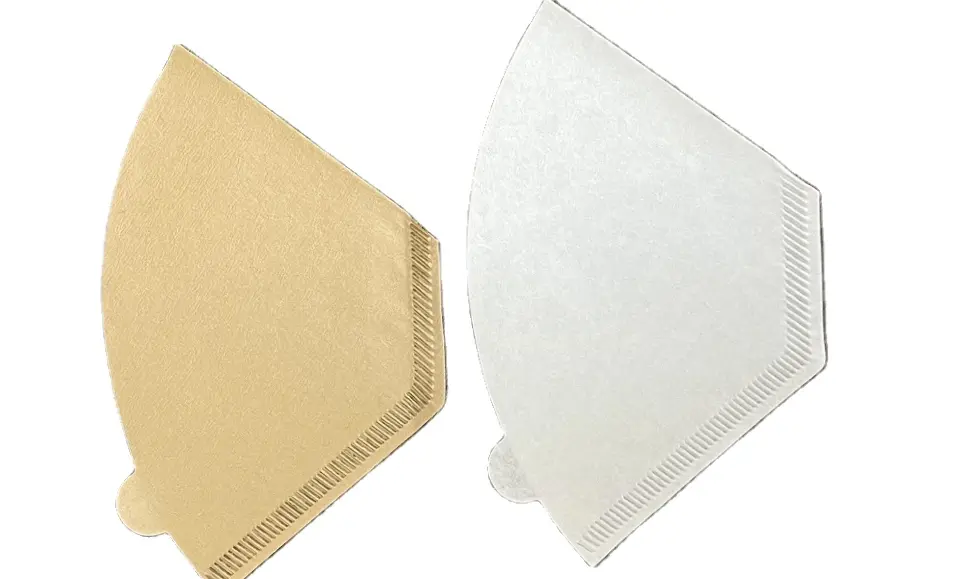
These filters are made out of crepe paper. This paper is designed to be more durable and better at maintaining its structural integrity than regular paper.
Integrity is essential in coffee filters since the filter needs to be able to withstand coming in contact with a hot liquid without tearing.
However, keep in mind that the durability of paper coffee filters doesn’t mean that you can use them several times. Paper coffee filters are designed for single-time usage and are commonly referred to as disposable coffee filters.
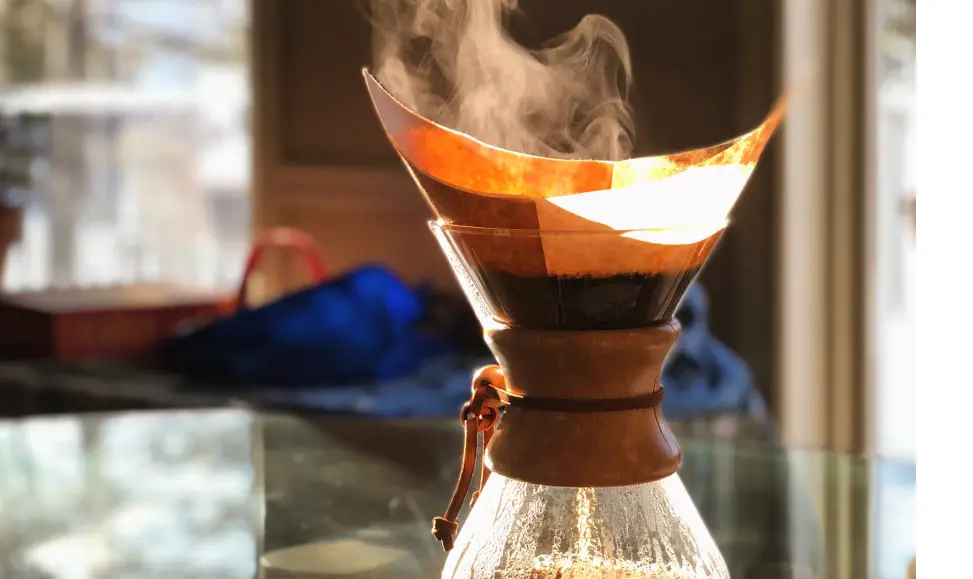
The Good
There are several advantages to brewing your cup of joe using paper coffee filters.
First of all, they’re probably the healthiest option out there. This is because paper coffee filters are highly absorbent, which allows them to soak up the oils in your coffee as it goes through.
These oils are known to cause a rise in your cholesterol levels, so paper filters allow you to enjoy your coffee with a reduced health risk.
Another perk of using paper coffee filters is their convenience.
Since these filters are only used once, you don’t have to worry about cleaning them after every pot of coffee you brew. You can simply dispose of them in the trash or go for the more environmentally friendly option of composting.
The convenience of paper coffee filters doesn’t stop there. They’re also compatible with almost any coffee machine and are readily available in your local grocery store.
The Bad
The main problem with using paper coffee filters revolves around financial and environmental sustainability.
Sure, the fact that paper filters are disposable makes them convenient to use. However, it also means that you have to keep buying more. You may not see this as a problem since paper coffee filters aren’t that expensive, but the cost will stack up over time.
In addition, these filters’ single-usage design creates a significant amount of waste. Just imagine how many filters you’ll go through over the years and how they’ll all end up in a garbage dump somewhere, especially if you’re not composting them.
Another issue with using paper filters is that their high level of oil absorption can sometimes lead to the flavor and aroma of your coffee lacking that richness we all look for in our cup of joe.
Popular Paper Filters
Unbleached
Bleached
- Melitta Pour Over Filter
- Hario V60 Misarashi Coffee Paper Filter
- Melitta Disc Coffee Filters For Percolators
Cloth Filters
Cloth filters are the go-to choice for coffee traditionalists. However, they’re not used very commonly nowadays.
These filters are crafted out of a finely woven cotton mesh that absorbs even the finest of coffee grounds. Also, because cotton isn’t as absorbent as paper, cloth filters let a considerable amount of the coffee’s oils through.
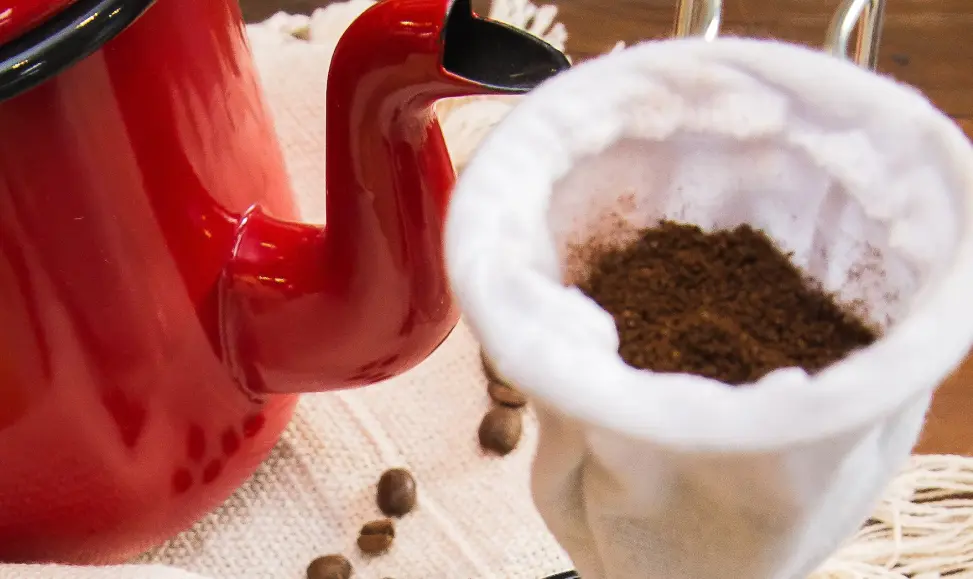
The Good
One of the pros of using a cloth coffee filter is its health benefits. But wait for a second; didn’t we just mention that cloth filters let some oils through? How are they still healthy?
Contrary to paper filters, cloth coffee filters don’t absorb your brew’s oils. However, one type of oil in your coffee is the exception.
Cafestol, which is the oil in coffee that’s responsible for raising cholesterol, is the only oil that cloth filters absorb. This makes your coffee more healthy while at the same time not compromising the richness of its aroma and flavor.
Another positive aspect of using cloth coffee filters is their sustainability, which makes them an environmentally responsible choice.
Unlike paper filters, you can use cloth filters a few dozen times before you have to dispose of them. So, they’ll make significantly less waste than paper filters.
Even when you do need to throw away cloth filters, the necessity of replacing them doesn’t stem from any safety hazard. It’s due to them having soaked up residues from previous brews and the possibility of them throwing off the flavor of your current one.
The Bad
The primary concern with using cloth coffee filters is that they’re notoriously difficult to clean. In addition to this, they require immediate cleaning after every time you use them. This is because if you wait too long to wash them, they’ll start to stain and give off an unpleasant odor.
Not only is cleaning cloth filters a hassle, but they’re also a bit high maintenance. These filters need to be stored in the right conditions if you want them to last. If you allow your cloth coffee filters to get too dry or too moist, you run the risk of ruining them.
Popular Cloth Filters
Metal Filter
The final material we use to make coffee filters is metal. Coffee filters of the metal variety are usually made out of an aluminum or stainless steel mesh with tiny perforations.
Unlike paper and cloth coffee filters, metal coffee filters aren’t absorbent at all and are designed to only stop the coffee grounds from getting into your cup. So, these filters don’t do anything to stop the coffee’s oils from getting through.
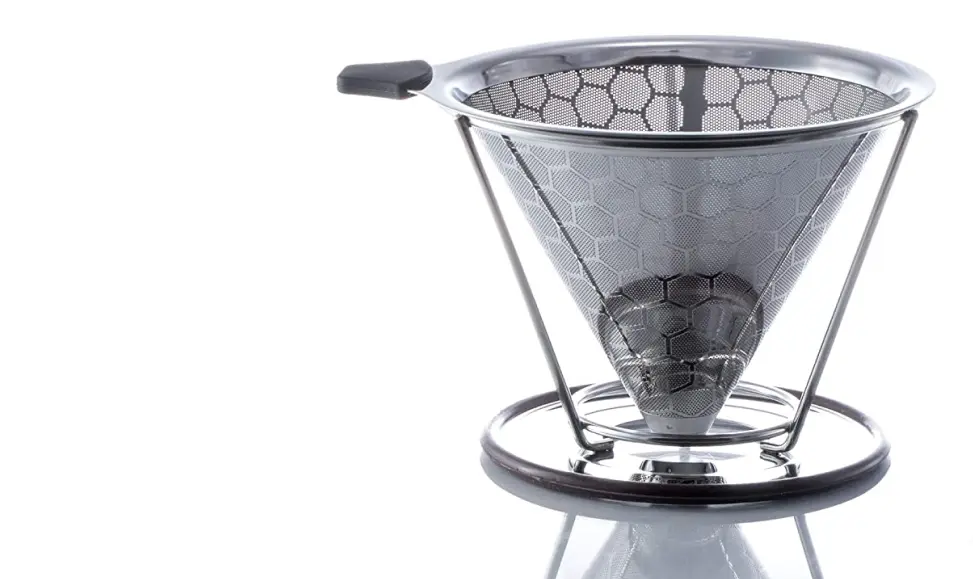
The Good
There are various advantages to using metal filters when brewing your coffee, the most significant of which is the flavor of the coffee you end up with.
The natural oils in coffee are the primary source of its rich flavor and aroma. Since metal filters allow all the coffee’s oil through, you get a cup of joe that’s brimming with flavor and scintillating to your sense of smell.
Additionally, metal filters don’t have a fine woven design like their paper and cloth counterparts. Therefore, they allow the fine coffee grounds to make their way into your cup. This gives your coffee an enhanced texture and mouthfeel.
Another perk of using metal coffee filters is their financial and environmental sustainability. These filters are designed to last for decades if you take care of them properly.
Therefore, metal coffee filters are the most cost-effective option out of the three types in the long haul (even if they do cost more to buy initially).
The fact that you may never have to replace your metal coffee filter also means that they produce no waste, effectively reducing your carbon footprint.
The Bad
Using metal coffee filters isn’t without its drawbacks.
For starters, the fact that these filters don’t absorb the oils from your coffee means that you’ll get a full dose of cafestol with every cup you drink. This can have an adverse effect on your health in the long run.
Additionally, metal coffee filters aren’t exactly the easiest to clean. This is due to their minuscule perforations, making it easy for coffee grounds to get stuck in them.
This is why you must thoroughly clean metal coffee filters before each use, as lingering coffee residue may cause your next brew to taste off.
Another reason why using metal coffee filters may be problematic is that they’re not as compatible with a wide range of coffee machines as paper or cloth filters.
This is because metal filters have a fixed shape. Therefore, you can’t mold them into a shape that’s compatible with a given brewer.
Popular Metal Filters
Coffee Filter Shapes
Another factor that differentiates the types of coffee filters from each other is the shape. The two shapes you’ll most commonly find coffee filters in are:
- Conical
- Basket
Let’s go through the good and the bad about using each one.
Conical Shape
Conical filters are the most common shape of coffee filters used. In turn, they’re the ones that are compatible with the broadest range of coffee machines.
These filters are widely considered to produce coffee with the richest texture and flavor. This is because these filters’ cone shape allows for more efficient mixing and saturation of your coffee grounds with the water.
However, you should note that conical filters are typically the most expensive.
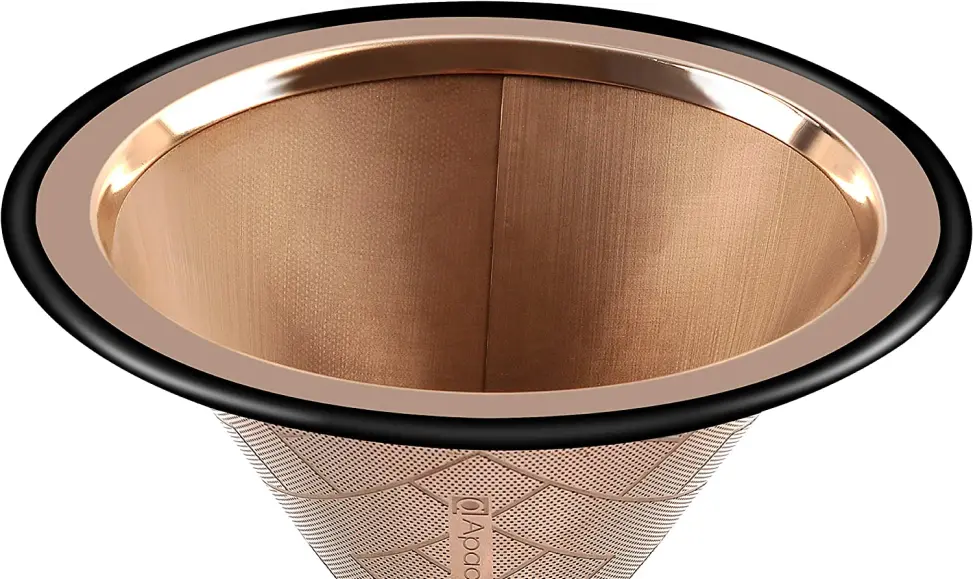
Basket Shape
Basket filters, also known as flat-bottom filters, can be best described as ‘closely resembling the wrapper of Reese’s Pieces.’
The main advantage of these filters is their price, which is significantly lower when compared to that of conical filters. Basket filters are also highly useful when you want to brew a large pot of coffee. These filters can allow you to brew up to 12 cups worth of coffee in one go!
However, there are some issues with using basket filters. Firstly, these filters aren’t as readily compatible with different coffee machines as conical filters are, which can make them inconvenient.
Additionally, the shape of a basket filter isn’t exactly ideal for brewing a flavorful cup of coffee with a strong aroma. This is because the flat bottoms of these filters don’t allow the water to mix with the coffee grounds as well as conical filters do.
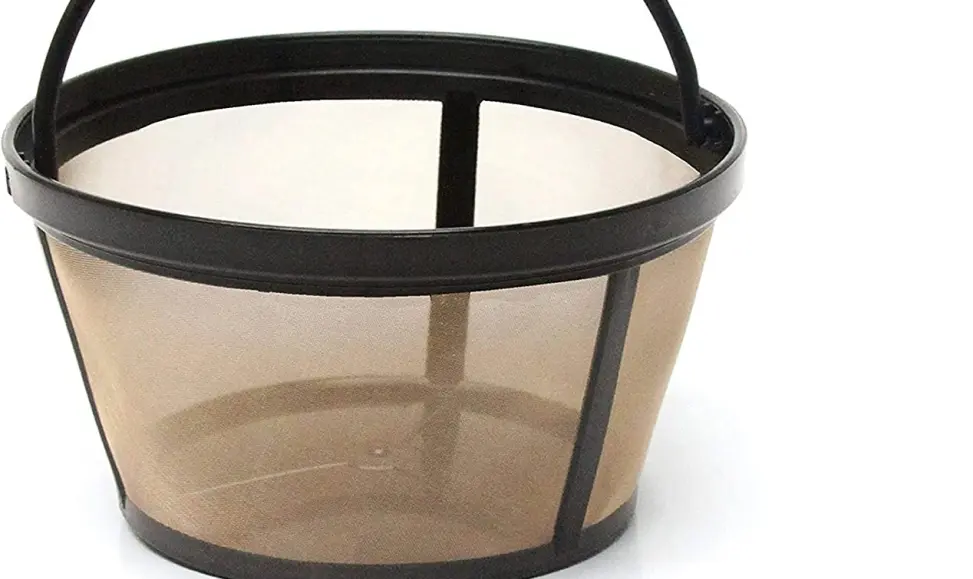
Coffee Filter Sizes
Coffee filters also come in different sizes, with each size being compatible with a different type of coffee machine.
The sizes of coffee filters are related to their capacity in terms of the number of coffee cups they can be used to brew in one shot.
As we’ve previously mentioned, basket filters are typically used to brew large batches of coffee. Therefore, it shouldn’t come as a surprise that these filters primarily come in the 8–12 cup size.
While basket filters typically only come in one size, the sizes of conical filters are a bit more flexible.
Conical filters come in four sizes:
Conclusion
When it comes to coffee filter types, there are several factors you have to keep in mind when classifying them.
First off, you have to consider the material of the coffee filter. The three materials that coffee filters are typically made from are paper, cloth, and metal.
Your choice of coffee filter material should be based on your priorities. If you want the most aromatic, flavorful, full-bodied coffee cup you can get, you should go for a metal filter.
On the other hand, if you’re willing to compromise some flavor for a more healthy cup of coffee, then you should consider a paper or cloth filter.
There are also two different shapes of coffee filters, conical and basket. The former is the more commonly used one and yields a better-tasting cup of coffee, while the latter is the better option if you’re brewing a large batch of coffee.

